Published May 7, 2019
6 Minutes With Astronaut Al Worden
As one of the lucky few to have been to the moon, Worden has a unique perspective on Star Trek and the future of space travel.
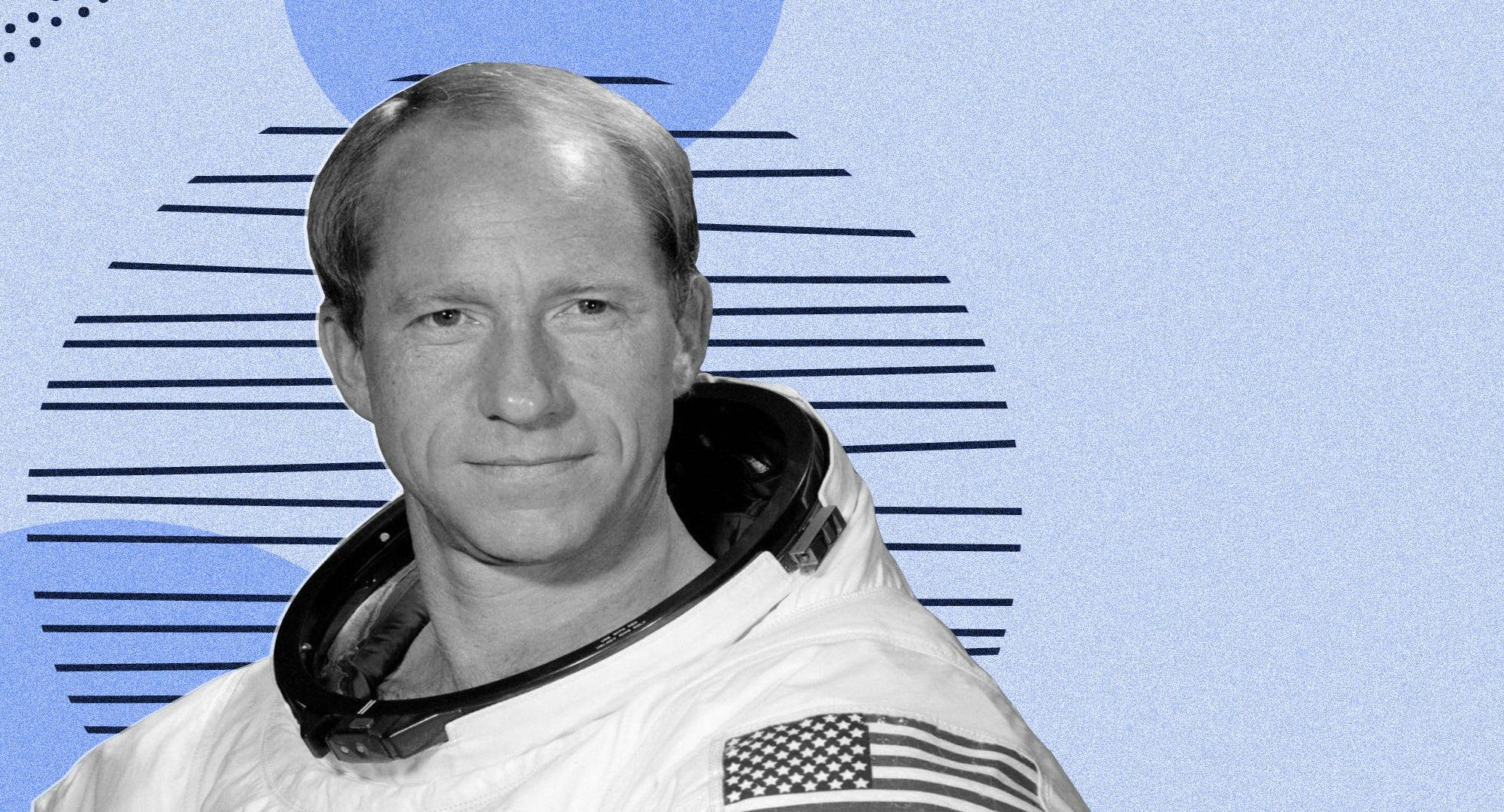
StarTrek.com
Al Worden is one of just 24 people on Earth to have trekked to the moon, and as the Command Module Pilot for Apollo 15, he logged 295 hours and 11 minutes in space between July 26 and August 7. 1971. Like many NASA figures before and after him, Worden acknowledges Star Trek as an inspiration, and he's attended more than a few Star Trek and sci-fi conventions over the years. We last caught up with the NASA astronaut just before 2016's Destination Star Trek Europe, to talk his excitement surrounding conventions, Star Trek's influence, and what it really means to be able to say that he's been to the moon.
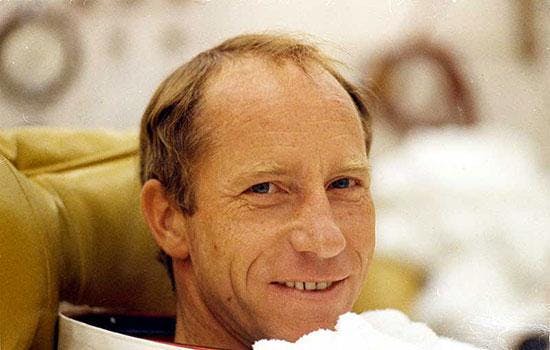
StarTrek.com: How excited are you when it comes time to join in on the fun at Destination Star Trek Europe?
Al Worden: It's a gas. I really look forward to it. I have to tell you, one of the talks that I give is titled, 'When Science Fiction Becomes Science Fact.' I use H. G. Wells, and I use Jules Verne. Then I have a long section on Star Trek, and what Star Trek has introduced to the public, that we are now using, like cell phones. They're not communicators like Star Trek had, but they're pretty damn close. The only thing they won't do is transport people.
Actually, the flip phone was absolutely amazing in that it even looked like a comunicator. It makes you wonder if they based the cell phone on the communicator.
AW: Exactly. There are a lot of things about Star Trek that got people thinking, and we're seeing a lot of things in public use now that, 40 years ago, you only saw on Star Trek. It's great fun. You like to see the technology that gets advanced, and I absolutely believe that people who can build things look at science fiction stories and say, "Hey, I can do something very similar to that." That's why we're seeing a lot of interesting things out there now.
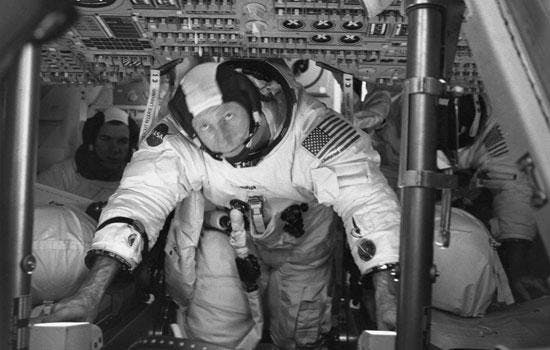
Was Star Trek at all an influence on either you or any of the scientists and astronauts you worked with, back in the day?
AW: Yeah, it was a big thing back then. I watched every single episode there was. I wasn't sure about the pink hair sometimes, but the rest of it was pretty good.
In the infamous space hippie episode?
AW: Right.
You started to touch on the intersection between sci-fi and sci-fact.
AW: In my 'When Science Fiction Becomes Science Fact' talk, we look at submarines and we look at spacecraft, and I look at From the Earth to the Moon. When Jules Verne wrote his story, you know where they launched from?
Just west of Cape Kennedy.
AW: Right, and [Verne] had the launch pad all figured out. This was way back. I always find that absolutely amazing.
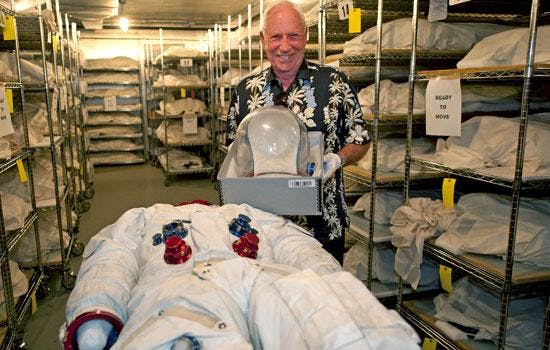
Since you've been in space for real, when you see depictions of space in things like Star Trek, how accurate is it? Or do you understand and accept the fact that, “Hey, why are they not wearing seatbelts on the ship? Why are they not wearing space suits?”
AW: Star Trek, I can live with, because it's fantasy, and it's very, very well done. I have a problem when I see a movie that is trying to make it seem like that's how they do things in the real world, and nothing could be further from the truth. I object to that, where they try to make it look real. A movie that I really like is Mission to Mars, with Gary Sinise and Tim Robbins. That was a pretty good movie. I thought they did that well, but you see, there weren't a whole lot of space scenes in that movie, except for Tim Robbins, when he lets go and drifts off towards the surface. That was pretty well done, all these other space movies that we're seeing lately, I can pick them apart.
You are one of just 24 people on the entire planet who have flown to the Moon. What does that mean to you? How much of an honor is that?
AW: It becomes an honor after the fact. When you're in the program, it's a scramble to get a position on a crew. It's a scramble to do what you have to do. It's a scramble to train for a flight. You don't think much about that honor, because you are so involved and engrossed in the training, and getting ready to do what you're going to do when you get there. The media and other people, after you come back, they start promoting it as an honor, and it is, but when you're doing it, it's just something very, very difficult that you got to do, and you've got to do it right.
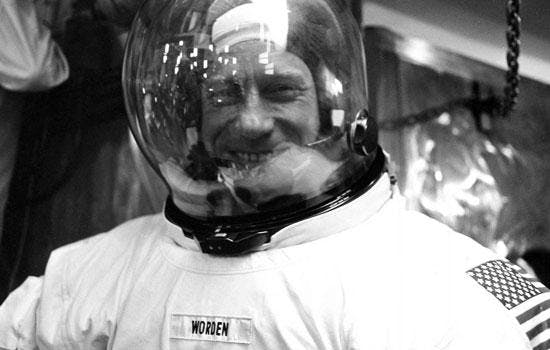
Have you gotten to know any of the Star Trek people over the years, since you have done conventions?
AW: No, I have not. George Takei was down at Buzz Aldrin's anniversary dinner in July. I think he was an emcee. I've met some of the other guys. I met Nichelle Nichols at one point. Who else? I spent an evening with DeForest Kelley once, but most of the crew I have not met.
Maybe you will when you're in Birmingham for Destination Star Trek Europe...
We're hoping so, and part of my motive for trying to get together with them, for doing this event, is that I'm trying to promote World Space Week. That's a very important week because it celebrates science and technology. Seventeen countries all have events and things to celebrate World Space Week, and it's that week. So, that's the tie-in with what we're trying to do with Star Trek.
For additional details and to purchase tickets to 2019's DSTE in Birmingham, go to http://www.destinationstartrek.com/
